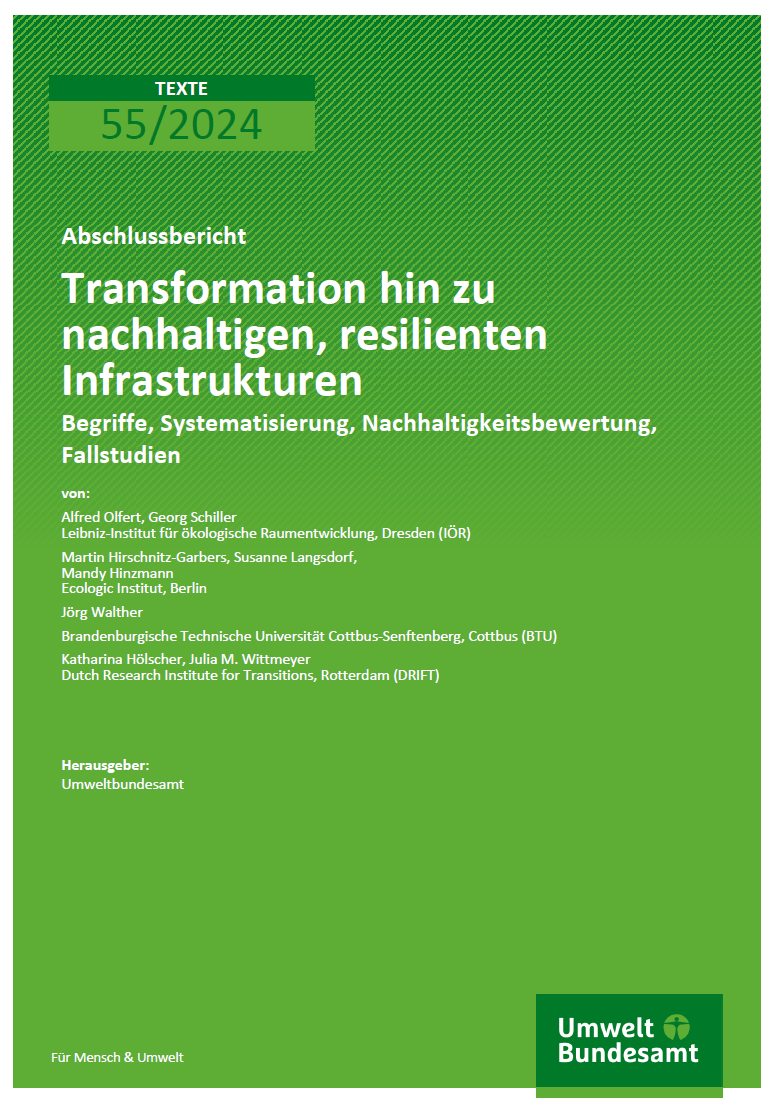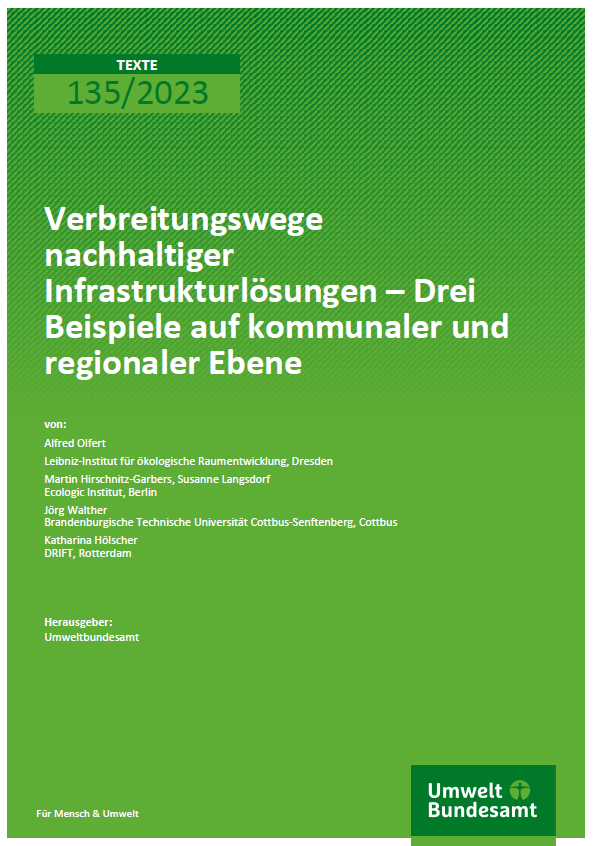Transformation hin zu nachhaltigen, resilienten Infrastrukturen
Begriffe, Systematisierung, Nachhaltigkeitsbewertung, Fallstudien
- Publication
- Citation
Olfert, Alfred et al. 2024: Transformation hin zu nachhaltigen, resilienten Infrastrukturen. Begriffe, Systematisierung, Nachhaltigkeitsbewertung, Fallstudien. Abschlussbericht. Umweltbundesamt: Dessau-Roßlau.
This final report provides an analysis of the innovation and dissemination processes of infrastructure solutions that aim to increase sustainability and resilience. The research was conducted as part of the TRAFIS II project.
Basics and definitions
The first step was to systematize the innovative infrastructure solutions in question. Different types of infrastructure linkages and their potential to promote sustainability were examined. The report presents definitions and discussions that serve to improve the dissemination and acceptance of these solutions. Particular focus was placed on the networking of relevant stakeholders and the integration of these solutions into existing systems in order to maximize their efficiency and impact.
Political conditions and dissemination strategies
Furthermore the political conditions that can influence the dissemination of these innovative solutions were analyzed. The report highlights key approaches to support the dissemination of infrastructure innovations, such as the promotion of demonstration projects and experimental spaces, as well as the formation and support of networks. These strategies are crucial to achieve the necessary acceptance and institutional anchoring required for a sustainable transformation.
Sustainability assessment and resilience of infrastructure solutions
Finally, a special assessment tool, TRAFIS.NB, was developed and tested. The TRAFIS.NB was developed for the in-process assessment of the sustainability of infrastructure solutions. This tool makes it possible to integrate various aspects of sustainability and resilience into the planning and development phases at an early stage. The application of this tool helps to effectively assess and optimize the potential impacts and benefits of sustainable infrastructure solutions.
The report concludes with a discussion of proven dissemination strategies and offers insights into successful approaches to implementing and promoting sustainable infrastructure at local and regional levels.





